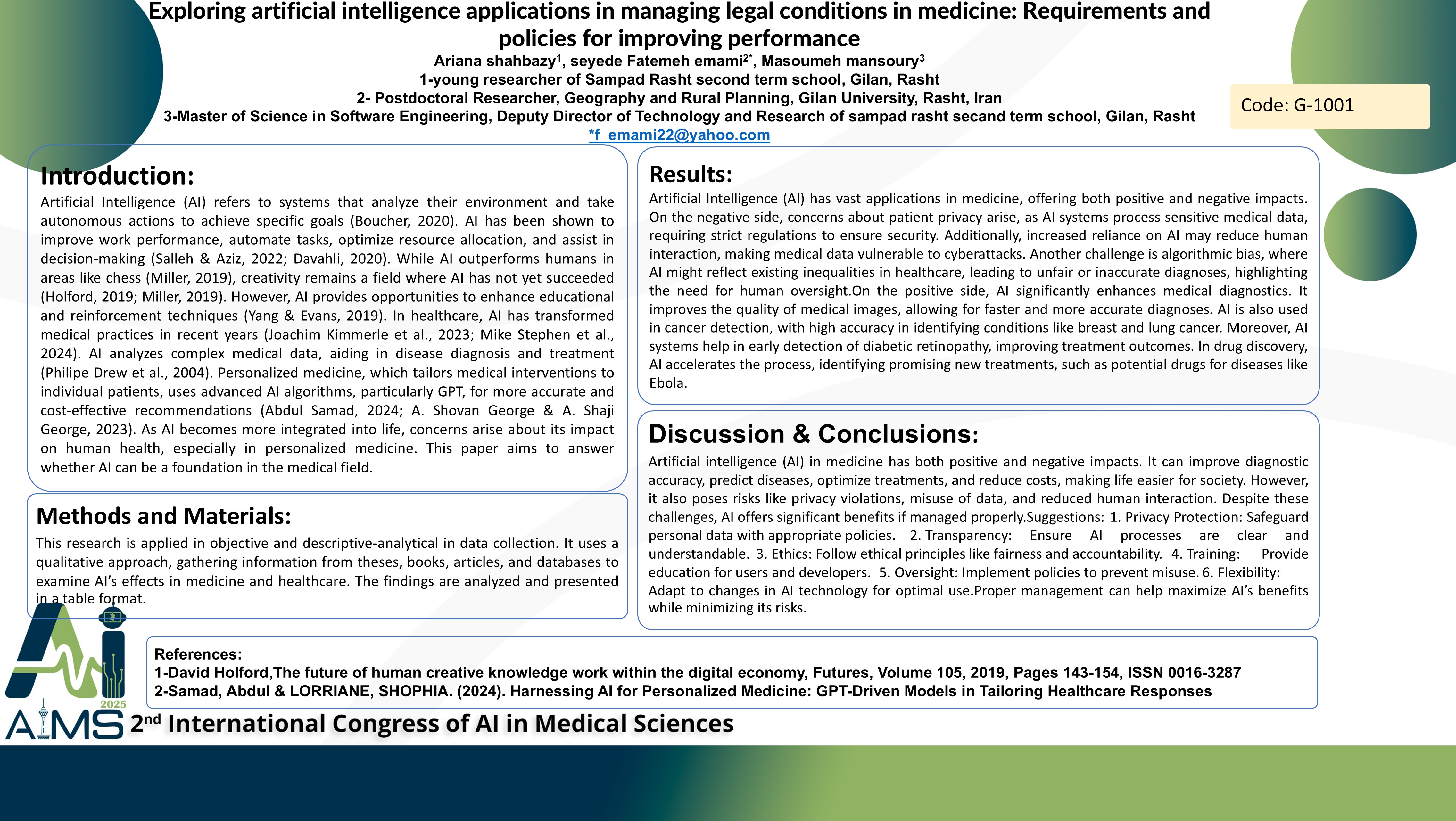بررسی کاربرد هوش مصنوعی در مدیریت شرایط در پزشکی:الزامات قانونی و سیاست های لازم برای بهبود عملکرد
کد: G-1679
نویسندگان: Ariana Shahbazy ℗, سیده فاطمه امامی *, معصومه منصوری
زمان بندی: زمان بندی نشده!
برچسب: سیاست گذاری، قانون گذاری و مدیریت سلامت در حوزه هوش مصنوعی
دانلود: دانلود پوستر
خلاصه مقاله:
خلاصه مقاله
Background and Aims: The proper use of artificial intelligence (AI) has a significant impact on human life, particularly in the medical field, where it plays a crucial role. Recent advancements in AI have led to the development of intelligent systems used for disease diagnosis, treatment planning, medical data analysis, and outcome prediction. This technology enhances diagnostic accuracy, reduces treatment costs, and improves the quality of healthcare services, ultimately benefiting public health. Moreover, in personalized medicine, AI can provide more effective treatments based on each patient’s genetic and clinical characteristics. Method: This study is applied in terms of purpose and descriptive-analytical in terms of data collection methods. It follows a qualitative research approach, analyzing reliable scientific sources, relevant laws, and policies to examine the challenges and opportunities in this field. Results: Research indicates that the effective use of AI can contribute to the development of intelligent medical systems, improving healthcare quality and diagnostic precision. However, challenges such as patient privacy violations, biases in medical decision-making, legal responsibility for errors, and the reduced role of physicians must also be addressed. Conclusion: To ensure the safe implementation of AI, establishing legal frameworks and enforcing regulatory policies is essential. Policymakers should develop laws to protect patient data, ensure algorithm transparency, and define legal responsibilities. Additionally, training medical professionals in the responsible use of AI plays a key role in minimizing risks and maximizing efficiency.
کلمات کلیدی
Artificial Intelligence, Personalized Medicine, Treatment, Policy-Making
